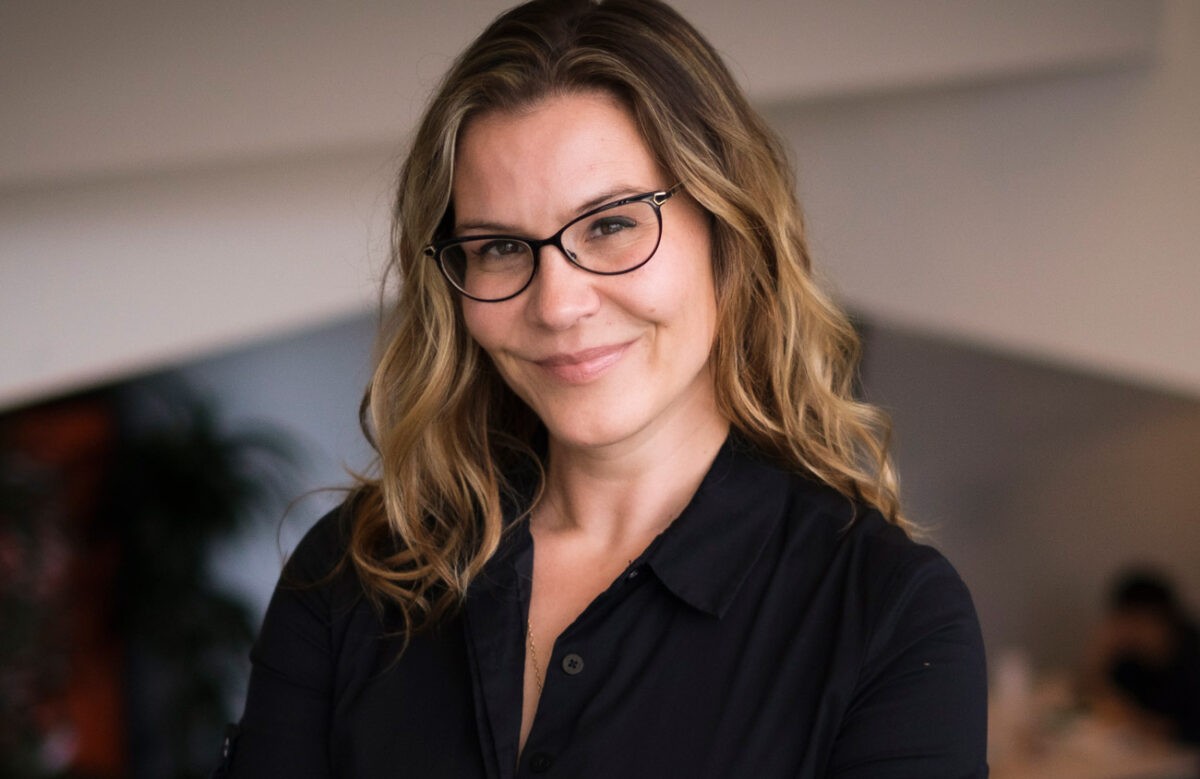Dr. Blaho began her research career focused on how bioactive lipids contribute to the innate immune response against bacterial infection, characterizing roles for eicosanoids in the generation and resolution of Lyme arthritis pathology. The wild diversity of lipid species led Dr. Blaho to Weill Cornell Medical College in New York City to pursue postdoctoral training in the field of sphingolipids, particularly sphingosine 1-phosphate (S1P), and its receptors. Advancing to Instructor at Weill Cornell and later, Research Assistant Professor at Sanford Burnham Prebys, Dr. Blaho continued her research in lipid chaperones and receptor signaling, with an emphasis on cell-type differential effects on hematopoiesis and immunity in response to cell stressors. Dr. Blaho is now a Research Associate Professor in the Center for Neurologic Diseases.
“The immune system has the power to protect us from invading pathogens and cancer or to initiate a ‘self-destruct’ sequence that consumes us with inflammation and autoimmunity. It is fascinating to me that a simple ubiquitous fat molecule like S1P can control the birth and destiny of immune cells.”
Education
2014-2016: Instructor, Weill Cornell Medicine, Pathology and Laboratory Medicine and Neuroscience
2009-2014: Post-doctoral training, Weill Cornell Medicine, Pathology and Laboratory Medicine
2007-2009: Post-doctoral training, University of Missouri, Columbia, Veterinary Pathobiology
2007: PhD, University of Missouri, Columbia, Molecular Microbiology and Immunology – BS
Funding Awards and Collaborative Grants
National Heart, Lung, and Blood Institute R01
American Heart Association Scientist Development Grant
2014-15: Leon Levy Neuroscience Foundation Grant
2015: Foundation LeDucq SphingoNet Young Investigator Grant
2009-12: National Cancer Institute Individual Ruth L. Kirschstein Post-doctoral Fellowship
Honors and Recognition
2017: British Journal of Pharmacology Lecture: FASEB Summer Research Conference on Lysophospholipids and Related Mediators–from bench to clinic.
2014: Leon Levy Foundation Neuroscience Fellow
2010: Keystone Scholarship, Bioactive Lipids: Biochemistry and Diseases
2008: Keystone Scholarship, Eicosanoids and Other Mediators of Chronic Inflammation
2007: Young Investigator Award in Inflammation, Eicosanoid Research Foundation
2004: National Academy of Sciences Christine Mirzayan Policy Fellow, Institute of Medicine Board on Health Sciences Policy
Related Disease
Biochemistry, Immune Disorders, Inflammatory/Autoimmune Disease, Leukemia/Lymphoma, Molecular Biology, Multiple Sclerosis
Phenomena or Processes
Adaptive Immunity, Apoptosis and Cell Death, Cell Signaling, G-Protein Coupled Receptors, Hematopoiesis, Inflammation, Innate Immunity
Anatomical Systems and Sites
Hematopoietic System, Immune System and Inflammation, Vasculature
Research Models
Human Adult/Somatic Stem Cells, Mouse, Mouse Somatic Stem Cells, Primary Cells
Techniques and Technologies
Cell Biology, Cellular and Molecular Imaging, Confocal Microscopy, Fluorescence Microscopy, Gene Expression, Lipid Bilayers, Mass Spectrometry
The lipid sphingosine 1 phosphate (S1P) is found in high levels in the blood and lymph and is primarily carried by the protein ApoM, found on HDL. S1P can affect the cardiovascular, nervous, and immune systems via interaction with cell surface-expressed receptors, S1P1-5. My work is determining how changing S1P carrier or receptor expression and signaling can affect cells of the immune system, particularly in the bone marrow, and how this alters their ability to respond to stress or infection.
 Dec 22, 2021
Dec 22, 2021A strange research ecosystem: Discussing Lyme disease with Victoria Blaho
Dec 22, 2021As an infectious disease immunologist studying Lyme disease, Victoria Blaho is one of a rare breed. Sanford Burnham Prebys assistant…
 Apr 22, 2021
Apr 22, 2021Victoria Blaho receives prestigious Lina M. Obeid Award
Apr 22, 2021The award honors Obeid, a pioneer in the field of sphingolipids and a fierce advocate for women in science. Victoria…